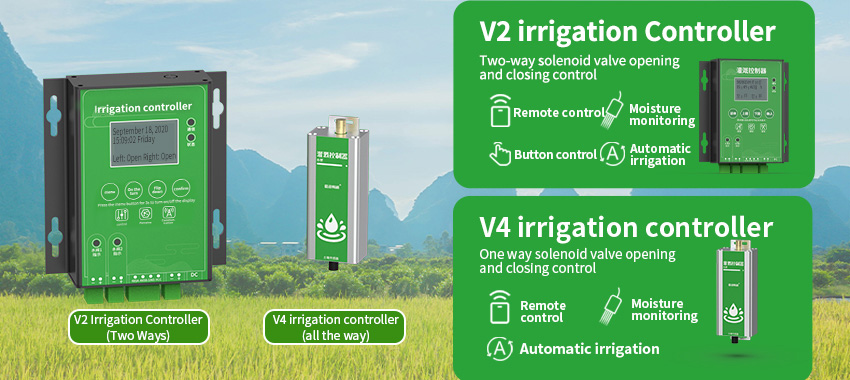Irrigation system controller
Irrigation system controller play a crucial role in efficient water management for agriculture, landscaping, and other applications. This article aims to explore the importance of irrigation system controllers, their key features and benefits, as well as their solutions for effective water management.
Understanding Irrigation System Controllers:

Overview of irrigation system controllers and their functions.
Types of irrigation system controllers: manual vs. automated.
Components and operation of irrigation system controllers.
Various sensors used for data collection and feedback.
Benefits of Using Irrigation System Controllers:

Water conservation: Precise control of water usage based on specific needs.
Time-saving: Automation reduces manual effort and labor costs.
Improved plant health: Optimal irrigation scheduling promotes healthy growth.
Efficient water distribution: Avoiding overwatering or underwatering.
Remote monitoring and control: Access and adjust settings from anywhere.
Key Features of Irrigation System Controllers:
Programming flexibility: Customizable schedules and watering parameters.
Sensor integration: Weather-based and soil moisture sensors for accurate data.
Multiple zone control: Independent control of different irrigation zones.
Rain delay and seasonal adjustment: Adaptation to changing weather conditions.
Water usage tracking: Monitoring and reporting on water consumption.
Solutions for Water Management:
Precision irrigation: Delivering the right amount of water to each plant.
Weather-based irrigation: Adjusting watering schedules based on weather forecasts.
Soil moisture sensing: Measuring soil moisture levels to optimize irrigation.
Drip irrigation: Targeted delivery of water to plants’ root zones.
Smart irrigation: Integrating controllers with IoT technology for real-time data.
Applications in Agriculture:

Field crops: Efficient irrigation for maximizing crop yield.
Orchards and vineyards: Precision watering for optimal fruit production.
Greenhouses: Controlled water distribution for specific plant requirements.
Nursery and landscaping: Water management for plants in commercial settings.
Hydroponics and vertical farming: Irrigation control in soilless cultivation systems.
Applications in Landscaping:
Residential lawns: Maintaining healthy and green landscapes.
Parks and recreational areas: Watering public spaces with efficiency.
Golf courses: Precise irrigation for maintaining turf quality.
Sports fields: Optimized water usage for safe playing surfaces.
Commercial properties: Water management in business complexes.
Maintenance and Optimization:
Regular inspection and cleaning of irrigation system components.
Troubleshooting and repair of irrigation system controllers.
Upgrading to newer technologies for enhanced performance.
Regular calibration and adjustment of sensor readings.
Training on proper usage and programming of controllers.
Conclusion
Irrigation system controllers are essential tools for effective water management in agriculture, landscaping, and other applications. By providing precise control over watering schedules, integrating sensors for data collection, and utilizing smart technologies, these controllers play a crucial role in optimizing water usage, ensuring plant health, and conserving one of our most valuable resources. With ongoing maintenance, upgrades, and proper training, irrigation system controllers can continue to contribute to efficient and sustainable water management practices for years to come.